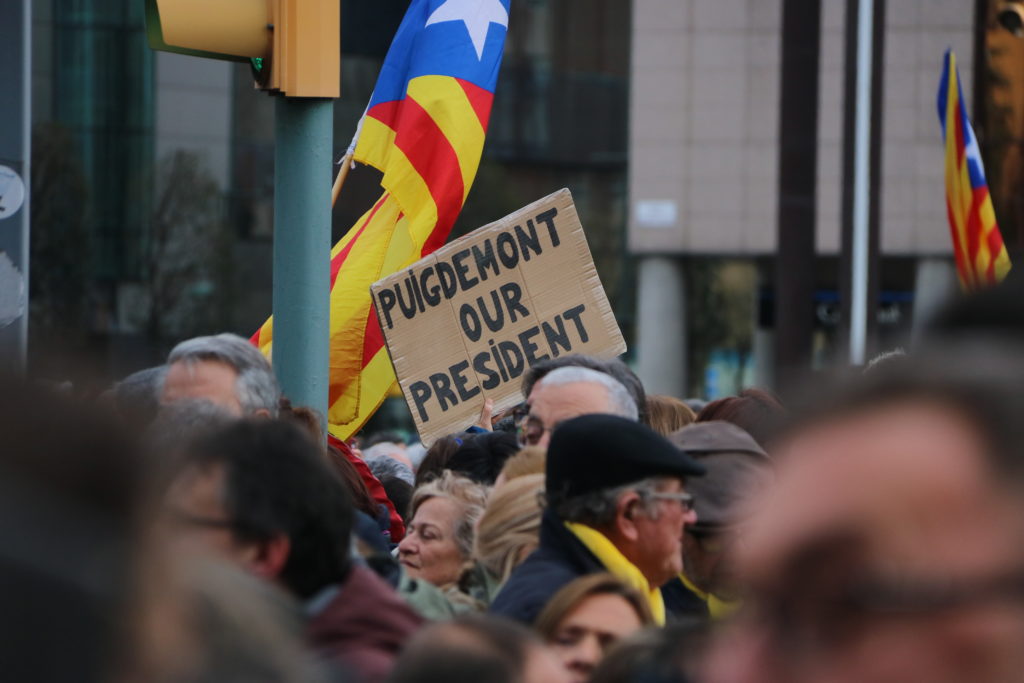26.03.2018 - 13:47
You said I was exaggerating, when I told you that this time independence for Catalonia is for real and there’s no longer any going back, that it’s only a matter of time. You’re not the only one who told me so, of course. It’s been ten years since we had those chats in various parts of Berlin, always with a Weissbier on the table in front of us. The ruling on the 2010 Statute of Catalonia had not yet been handed down, but you could already see that thousands of Catalans had started to become disengaged from Madrid and that mentally they’d become independent. Their ID stated and continues to state that they are Spanish, but not only did they not feel it to be so, but they no longer acted like it were so.
A lot has happened since then. Catalan society has changed a great deal and its president spent last night in a German prison. It’s like what they say: sometimes more things happen in a decade than in a century. We’ve continued to talk when we’ve met again, in Germany and in Catalonia, or in the emails that we’ve sent each other. Catalonia’s independence movement is increasingly broader and more solid, with an ability to organize and resist that surprises all those who, like yourself, approach it with an open mind. You’re an international journalist, you travel constantly and —as you’ve told me on many occasions— currently no other country in the world has the same potential for social and political mobilization as Catalonia.
I also told you that, if we ended up where we are right now, it won’t be solely down to our successes. It’s true that increasingly people have made up their minds and on 1 October last year they showed this to be true by staging and supporting a referendum on independence in the face of a state that literally stopped at nothing to prevent it. Finally, unable to stop the referendum from going ahead through legal means and incapable of confiscating the ballot boxes and other logistical material, they decided to show the world their impotence in the form of frenzied attacks by the police against peaceful voters. The time for talking is over, only our strength remains. You were there, you saw it with your own eyes and told your readers about it.
It is equally true, however, that the pro-independence political parties haven’t always been aware of the historic challenge they face and all too often they have lost their way in inexplicable, unforgivable squabbles, endangering the entire project and testing the public’s patience. Nonetheless, the Spanish state has always appeared on cue with a prison sentence or actions which have served to ensure a few thousand more people are favourable to Catalan independence and to unite the political parties. Germany’s Christian Democratic Union (CDU) has stated it publicly and politicians on all sides of the Bundestag have confirmed it to you: Rajoy’s strategy makes no sense and it’s clear that ‘the Catalan problem’ won’t be resolved by resorting to the courts and the police.
Now, suddenly, Catalonia is looking to Germany without really knowing what to expect. From the moment when the German police detained President Carles Puigdemont near the Danish border, 300 kilometres northwest of Berlin, Catalonia’s political temperature has risen by several degrees. Thousands of protesters took to the streets to call for freedom. They also shouted, “enough is enough”. This may well be the straw that breaks the camel’s back; we shall see. This time the protests were no longer entirely peaceful, there were confrontations with the police and some scuffles, though minor in nature. I’ve often told you that the indirect message that the EU and its member states send to Catalonia is highly dangerous because people end up thinking that Catalonia has less chance of becoming independent than Kosovo.
Cries of “freedom for political prisoners” could also be heard at the Liceu, Barcelona’s renowned opera house, and the social networks were abuzz until the early hours of the morning. Puigdemont’s Flemish lawyer summed it all up: Spain has become a dictatorship since it imprisons people because of their political beliefs and for its use of international arrest warrants in a manner which has nothing to do with the rule of law. Renowned international journalists have openly declared themselves to be opposed to Puigdemont’s extradition. In Germany, unlike Spain, the separation of powers is a given. As a result, we must wait see and see what the judge decides.
When Puigdemont was arrested yesterday, many of us couldn’t help but think of the arrest of Lluís Companys in France by the Gestapo in 1940. The president of Catalonia was handed over to Franco’s regime and executed in Barcelona. I know you and I know you’ll think that it’s not possible to draw any parallels. Obviously, Germany is not Nazi Germany and Spain is not quite pro-Franco Spain, in spite of the fact that it has done little to distance itself from its past and the remains of the Franco era still linger. Perhaps this is the result of having chosen a transition rather than a clean break. Francisco Franco Foundation, Valle de los Caídos monument to the Franco regime and thousands buried in mass graves. As a German, you know exactly what I mean. We’ll see what decision Germany makes 78 years on. And while we read that in Neumünster the prisoners greeted Puigdemont with cries of “Freedom!”, many in Spain chose to celebrate his arrest.



